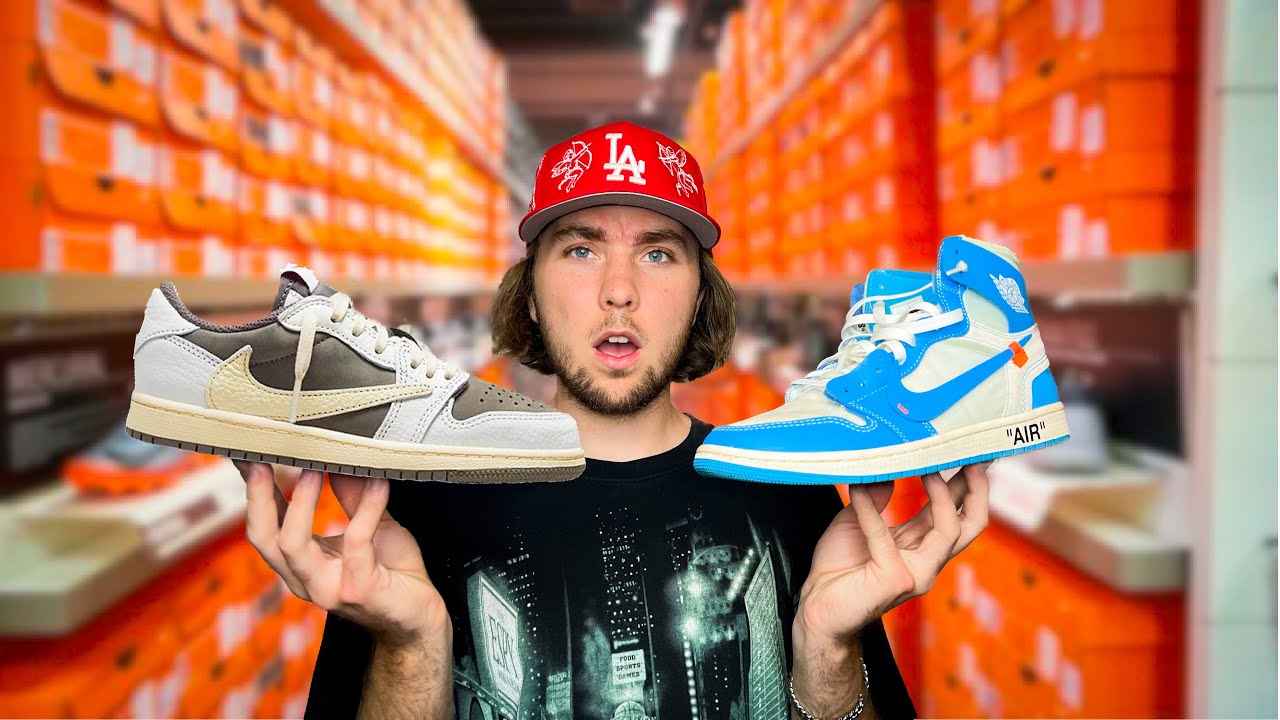Unveiling the World of Shoe Replicas: Authenticity, Risks, and More
Introduction
When it comes to the realm of footwear, shoe replicas have gained considerable attention in recent years. These reproduction shoes, also known as knockoffs, counterfeits, or fake footwear, imitate popular designs from well-known brands. This article aims to shed light on the world of shoe replicas, exploring their characteristics, risks, and legal implications. Whether you’re curious about identifying replica shoes, want to understand their quality compared to the originals, or are considering purchasing a pair, we’ve got you covered. Let’s embark on a journey to uncover the secrets of shoe replicas.
How to Identify Replica Shoes?
Identifying replica shoes can be challenging, as counterfeiters have become increasingly skilled at mimicking the designs of genuine products. However, there are several key indicators that can help you distinguish between authentic and replica footwear:
a) Quality and Craftsmanship: Authentic shoes are typically crafted with meticulous attention to detail and high-quality materials. Inspect the stitching, materials, and overall construction for any signs of inferior workmanship.
b) Branding and Logos: Pay close attention to the brand logos, font styles, and positioning. Authentic shoes often feature precise and consistent branding, while replicas may exhibit variations or inaccuracies.
c) Price Discrepancies: If a deal appears too good to be true, it probably is. Unusually low prices can be a red flag, as genuine branded footwear usually comes with a higher price tag.
d) Packaging and Accessories: Legitimate shoe manufacturers invest in premium packaging and include authenticity cards, dust bags, or tags. Counterfeit shoes may lack these additional elements or have poorly replicated versions.
Comparing Replica Shoes to the Originals
While replica shoes aim to imitate their authentic counterparts, there are notable differences in terms of quality, materials, and craftsmanship. It’s essential to set realistic expectations when considering replica footwear:
a) Materials: Authentic shoes are often crafted using high-quality materials, such as genuine leather or advanced synthetic fabrics. Replica shoes may utilize lower-grade materials that can affect durability, comfort, and overall performance.
b) Craftsmanship: Authentic shoes are meticulously crafted by experienced artisans, ensuring precision and attention to detail. Replica shoes might exhibit slight imperfections or inconsistencies in stitching, glue application, or overall finishing.
c) Comfort and Fit: Original shoes are designed with ergonomics in mind, offering optimal comfort and a tailored fit. Replicas may not prioritize these factors, potentially leading to discomfort or incorrect sizing.
d) Longevity: Authentic shoes are engineered to withstand the test of time, thanks to quality materials and expert construction. While some replica shoes can be surprisingly durable, they generally don’t match the longevity of their genuine counterparts.
The Risks of Buying Replica Shoes
Purchasing replica shoes comes with inherent risks that buyers should be aware of. These risks include:
a) Legal Consequences: Replica shoes infringe upon intellectual property rights and trademarks held by the original brands. Engaging in the production, sale, or distribution of counterfeit footwear can lead to severe legal repercussions.
b) Poor Quality and Durability: As mentioned earlier, replica shoes often use lower-quality materials and exhibit subpar craftsmanship. This can result in reduced durability, discomfort, and a shorter lifespan compared to authentic shoes.
c) Lack of Customer Support: Authentic shoe brands provide customer support, warranties, and repair services to ensure a positive experience for buyers. Replica shoe sellers rarely offer such support, leaving customers with limited recourse in case of defects or issues.
Legal Considerations: Are Replica Shoes Legal?
The production, sale, or purchase of replica shoes is generally considered illegal in most countries. Counterfeiting footwear infringes upon intellectual property rights, trademarks, and copyrights held by the original brands. Engaging in such activities can lead to severe legal consequences, including fines, penalties, and even imprisonment.
It’s important to note that laws regarding replica shoes vary from country to country, and enforcement levels may differ as well. However, from an ethical and legal standpoint, supporting counterfeit markets is widely discouraged.
Reputable Websites for Purchasing Replica Shoes
While we strongly advise against purchasing replica shoes, we understand that some individuals may still seek out such products. If you choose to explore this avenue, exercise caution and research thoroughly to find reputable sellers. However, keep in mind that reputable websites do not sell replica shoes as their main business model. Always prioritize purchasing authentic footwear from authorized retailers or the brand’s official channels to ensure quality, authenticity, and a positive customer experience.
Protect Yourself: How to Avoid Purchasing Counterfeit Footwear
To protect yourself from inadvertently purchasing counterfeit footwear, follow these guidelines:
a) Research and Educate Yourself: Learn about the characteristics, materials, and details specific to the brand and model you’re interested in. Familiarize yourself with the official retail price, packaging, and authorized retailers.
b) Purchase from Authorized Retailers: Buy shoes directly from the brand’s official stores or authorized retailers. This ensures that you’re getting a genuine product and can access customer support if needed.
c) Examine the Seller’s Reputation: If purchasing online, research the seller’s reputation and customer reviews. Look for feedback from previous buyers regarding the authenticity and quality of the shoes they received.
d) Trust Your Instincts: If something feels off or too good to be true, it’s likely a warning sign. Exercise caution and trust your instincts when making a purchase.
Frequently Asked Questions
a) How do replica shoes compare to the original ones?
Replica shoes aim to imitate the designs of original shoes but often fall short in terms of quality, materials, and craftsmanship. Authentic shoes generally offer better durability, comfort, and longevity.
b) Are replica shoes worth it?
While replica shoes may appear as affordable alternatives to original designs, they come with risks and limitations. Purchasing authentic shoes ensures quality, customer support, and the satisfaction of owning a genuine product.
c) What are the risks of buying replica shoes?
Buying replica shoes carries risks, including legal consequences, poor quality, lack of customer support, and potential health hazards due to the use of inferior materials.
d) Are replica shoes legal?
In most countries, the production, sale, or purchase of replica shoes is illegal and considered a violation of intellectual property rights.
e) How to spot fake sneakers?
To identify fake sneakers, pay attention to quality, craftsmanship, branding, and packaging. Research the specific features and details unique to the original shoe you’re interested in.
f) Where can I buy high-quality replica sneakers?
We strongly discourage purchasing replica sneakers. Instead, consider investing in authentic footwear from authorized retailers or the brand’s official channels to ensure quality and authenticity.
g) What are the consequences of selling counterfeit shoes?
Selling counterfeit shoes can lead to severe legal consequences, including fines, penalties, and imprisonment. It is a violation of intellectual property rights and trademarks.
Conclusion
Shoe replicas, also known as counterfeit or fake footwear, have gained popularity but come with risks and ethical considerations. Identifying replica shoes requires careful inspection of quality, craftsmanship, branding, and price. Authentic shoes offer superior quality, materials, and longevity compared to replicas. Purchasing replica shoes is generally illegal and supports infringing activities. To ensure a positive buying experience, prioritize purchasing authentic footwear from authorized retailers or the brand’s official channels. By understanding the risks and making informed decisions, we can safeguard ourselves and support the authenticity of the footwear industry.


![Ears pierced at Target: A Complete Guide [2024]](https://webenterpreneurs.com/wp-content/uploads/2023/06/Ears-pierced-at-Target-768x432.png)
![Can You Wash on Cloud Shoes? [Explain in 5 Easy Steps]](https://webenterpreneurs.com/wp-content/uploads/2023/07/Can-You-Wash-on-Cloud-Shoes--768x432.png)


![Jordan 1 Mid Light Smoke Grey [Detailed Guide]](https://webenterpreneurs.com/wp-content/uploads/2023/08/Jordan-1-Mid-Light-Smoke-Grey--768x432.png)